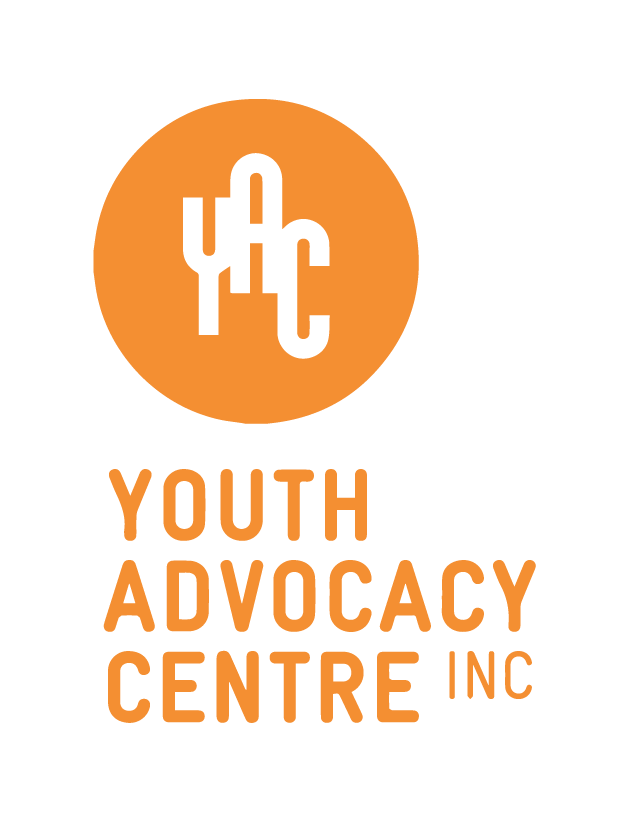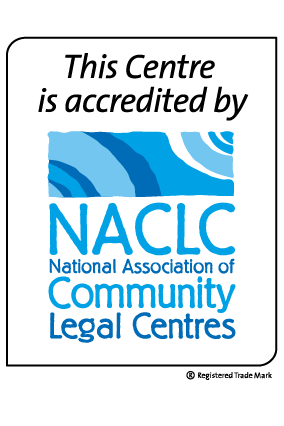Moving Out
Information on moving out of home.
If you are thinking of leaving home and are under 18, it is a good idea to talk to someone you trust OR call one of the agencies under ‘Who can help?’ They should keep things confidential or you can contact them without giving your name.
When can I leave home?
Generally, you can leave home when you are 18 years old.
Under 18?
There is no legal age for when you can leave home. However if you are under 18 years of age and there is a:
- Court Order which says who you must live with or
- if you are on a Child Protection Order
this may make it more difficult to leave home.
If you do leave home before you are 18, there is a chance that Child Safety Services (Child Safety) may become involved if they believe you are at risk of harm.
In practice, this means if you are under 18 and Child Safety or the police are told or find out that you are not living at home, they will need to be convinced that you can care for your basic necessities of life. This means looking at whether you:
- have somewhere appropriate to live
- can adequately care for your basic needs (food, shelter, clothing, medical, mental health)
- have adequate supervision.
If any of these seem to be a problem, Child Safety will assess whether your living situation is likely to cause you physical, emotional or mental harm. They will then look at how great that risk is to determine whether and how quickly they will step in.
This means the younger you are the more difficult it will be to convince Child Safety that you are able to look after yourself properly, especially if you are not living with a responsible adult like a friend’s family member. If the police or Child Safety are not convinced that you are safe and able to look after yourself, they may apply to the court for a Child Protection Order (see below for what this means).
It is also a good idea to think about what personal things you might need to take with you if you decide to leave home (such as ID, school records, clothing).
What about my parents?
If your parents do not know where you are and are concerned about you, they will usually call the police or Child Safety and you will be listed as a missing person. This means the police will be asked to look out for you. If the police find you they will want to know why you left home. The police and Child Safety have a duty to listen to you and investigate your story. You have the right to feel safe and should tell the police or Child Safety where you want to go if there are reasons why you do not feel safe or able to go home. You should not be sent home straight away.
If you have left home without your parents’ agreement, it is a good idea to call them or the police to let them know you are safe. You will not be taken off the missing persons list until you:
- go into a police station and prove who you are AND
- give police the address of where you are living.
Taken into care?
Child Safety can ask the court for an order if they think you are not safe within your home or unable to look after yourself properly. These orders can mean you will not be able to live with your family for a long time. You should get legal advice if you think this may happen to you.
Will shelters or Crisis Care tell my parents where I am?
There is no law that says services such as youth shelters must tell your parents where you are. If you are concerned about this, ask about the rules of the place where you are staying. Crisis Care may tell your parents where you are IF:
- you are under 16 years of age OR
- you are on a Child Protection Order.
A place to live?
You will need to contact one of the agencies under ‘Who can help?’ for information on the types of housing listed below. You can also contact the Queensland Youth Housing Coalition on 0439 739 747 or visit www.qyhc.org.au for information and resources.
In an emergency?
If you need somewhere to stay for a short time there are emergency youth shelters, refuges or hostels where you may be able to stay for up to 3 months. They are usually supervised by workers on a 24-hour basis.
The amount (if any) you pay to stay there depends on how long you stay and whether you have an income.
Sometimes emergency youth shelters might not be able to help because they are full. If you need emergency assistance you can contact Homeless Persons Information Queensland on 1800 474 753. This is a State government free call number that assists people to find crisis accommodation. If you are under 17 they will refer you to the Kids Help Line.
Squatting?
Squatting means moving into an empty building or house and living there. Squatting is illegal and police can arrest you for ‘breaking and entering’ or ‘trespassing’. If you have nowhere to go and are thinking of moving into a squat, it is a good idea to call one of the agencies under ‘Who can help?’
Caravan Parks?
This choice can sometimes be cheaper than privately renting. Contact the Tenants Queensland or a Tenant Advice and Advocacy (TAAS) service near you.
Medium term places?
You can usually stay in this type of accommodation for up to 12 months. It depends on what ‘set up’ the service offers as to whether their workers live in, are only there during the day, or just drop by from time to time. Community Housing Services offer a range of options, from sharing with other young people, to living in a single flat. You will usually have to pay an amount each week (usually 25% of your income) to stay there. This is worked out by looking at how much income you receive from Centrelink or employment.
Share house?
Privately renting can be very expensive and sharing may be a way around this. The choice to move into a share house with other people is something that you will need to think about carefully. It is a good idea to ask lots of questions (how phone bills and electricity will be paid or rules about having people over) before you decide to move into a share house.
Anyone can apply for private rental accommodation. If you are under 18, you are able to sign a tenancy agreement if it is deemed to be a contract of necessity. Accommodation contracts are generally considered to be contracts of necessity.
Sometimes a landlord may be unsure about renting to you because of your age. You should try to explain that you can’t be discriminated against (treated unfairly) because of your age. Laws about renting and leaving (including bond, rent, rights and responsibilities of the landlord & tenants) are complicated. If you have any hassles with your landlord contact the Tenants Union of Queensland for advice or ask to get their Fast fact sheets.
Social housing?
Social housing in Queensland is housing that you rent from the government (what used to be called public housing or housing commission) or from a community housing service. You can apply for social housing as long as you receive a certain level of income. This means that you can rent at any age as long as you have an income to support yourself.
You can apply for social housing by filling out the standard form called Application for Housing Assistance Form 7 (http://www.hpw.qld.gov.au/SiteCollectionDocuments/HAssist.pdf). This means you only have to fill out one form to get your name on the housing register. This form is available from the Queensland Government website or from your local Department of Housing Area Office. If you don’t know where your nearest office is you can call one of the agencies under ‘Who can help?’
In Queensland, to obtain social housing, you have to be able to show that you are on a low income AND that there are other reasons why you need social housing. Some of these reasons include:
- if you cannot access private rental housing
- the private rental market does not meet your needs (including if you have not been able to keep a tenancy)
- you have a medical condition
- you have a disability
- other reasons, including if you are homeless or at risk of homelessness.
The Application Form will help the Department of Housing understand the reasons why you need housing assistance. This form will also want you to list where you want to live. The areas you list will be used to decide when you will be offered housing and how long you will have to wait. This form requires a lot of information from you because it helps determine your level of housing need and whether you meet the eligibility criteria. It is important to fill this form out properly. If you need help filling it out call one of the agencies under ‘Who can help?’
This process will require you to have an interview with the Department of Housing to go through your application. If you do not go to an interview the department will not progress your request and you may have to start over again. If you want someone to go with you to the interview call one of the agencies under ‘Who can help?’
There may be times where the Department of Housing may tell you that you cannot be housed in social housing immediately because there are other people who may be in greater need. This does not mean they will not put your name on the housing register, however, it might mean that it could take a very long time. If this happens to you the Department of Housing should offer you other forms of assistance or you could call one of the agencies under ‘Who can help?’ to find other accommodation.
Browse other legal topics
This sheet is intended to provide general legal information about the law in Queensland. This information is not legal advice. If you have a particular legal problem you should contact a solicitor for legal advice. Below is a list of agencies that might be able to assist you, including legal agencies.
This sheet was last reviewed and updated in January 2020. The Youth Advocacy Centre does not accept responsibility for any action or outcome because of anyone relying on the information provided.
Who can help?
Youth Advocacy Centre (YAC) www.yac.net.au ………………………….. 3356 1002
Child Safety After Hours Service (24hrs) (DOC) www.communities.qld.gov.au ………………………………………………………………………………….. 3235 9999 or (free call) 1800 177 135
Tenants Queensland (Tenancy advice including for caravans and mobile homes)………………………………………………………………………………….. 3832 9447 or 1300 744 263
Residential Tenancies Authority www.rta.qld.gov.au ……………………. 1300 366 311
Translating & Interpreting Services (24hrs)………………………………. 131 450
Queensland Youth Housing Coalition www.qyhc.org.au ………………… 3876 2088 or 1800 061 142
Community Legal Centres (CLCs) see www.naclc.org.au for your nearest CLC
Follow Us
Follow us on social media for information on laws, youth rights, and news.
Contact YAC
Street address: Level 4, 16 Peel Street, South Brisbane Q 4101
Mailing address: Level 4, 16 Peel Street, South Brisbane Q 4101
Tel: (07) 3356 1002
Bussiness hours: 9am - 5pm, Mon - Fri

If you need urgent assistance outside of these hours:
- Youth Legal Advice Hotline 1800 527 527 (Mon to Thurs 8am - 9pm, Friday 8am to Sunday 5pm)
- Kids Helpline 1800 551 800 (24/7, 365 days per year)
- Lifeline 13 11 14 (24/7, 365 days per year)
- Homelessness Hotline 1800 474 753 (24/7, 365 days per year)
- If you are over 18, and seeking access to Mental Health Services in Queensland, Acute Care Team on 1300 MHCALL (1300 64 2255).


